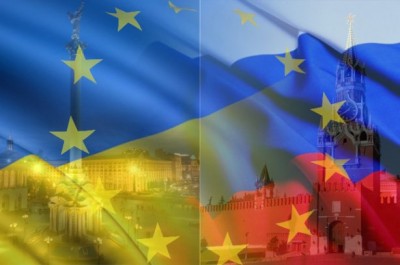Sanctions on Russia over Ukraine would hurt the EU, US

The EU is freezing talks on a visa-free regime with Russia, according to the European Council President Herman Van Rompuy. The move has been branded as “politicized, not constructive and ungrounded” by Russia. The Voice of Russia talked to Mahdi Nazemroaya, Globalization studies center research fellow.
VoR: In your opinion are European powers likely to come to an agreement on Russia’s role in Ukrainian crisis in the immediate future?
Nazemroaya: First of all I think we should emphasize that there is a difference of opinion not only within governments comprising the EU but there is a difference of opinion amongst the citizens of the EU. A lot of them believe that they shouldn’t be involved in the affairs of Ukraine or in the former Soviet Union, a lot of them see this as a stoking of cold war tensions that are totally unnecessary, and they believe that their governments should back off in regards to the events in Ukraine as well as Russian involvement there. In regards to the actual governments though, and the media which is trying to spread the flames of Russophobia in Europe, a lot of these governments are very cautious: we can’t forget that Russia is a major trading partner for Germany; France has a lot of investments in Russia, in the auto industry for example; Russian energy resources are very important for many European countries. These things have to be taken into consideration and that is why many European countries are less gung-ho than the US is about sanctions against Russia for example or any aggressive movement against Russia. So there are divisions within the EU. And the factor we have to look at is the pressure the US is putting on the EU to sanction Russia or to get an aggressive encounter with the Russian Federation. I don’t know how they would want to impose any sanctions on Russia, I think that it would be a big mistake.
VoR: If some sanctions would be imposed what kind of sanctions could be on the table?
Nazemroaya: We know that the US has made a list of people that it wants to sanction. Right now there are people in the Crimea, Ukrainian citizens, which the US claims are threats to Ukrainian sovereignty and stability. But the Obama Administration and the White House have authorized the adding of Russian officials on to that list, but from what we know no Russians officials have been added to the list. I can’t see anything more than talking sanctions. If Russia is sanctioned by the EU or the US it would hurt them, it would divide the global financial system.
I don’t think that they can sanction Russia, it is such an important part of the global economy. It has trade with the Chinese; the Chinese are one of the engines of the global economy. Are they going to follow these sanctions? No, they are not. The Chinese will not follow these sanctions, nor will a vast segment of the international community and the countries of the world. You won’t see any of the BRICS countries be part of any sanctions regime against the Russian Federation.
But I still want to emphasize too that since 2011 the US has wanted to economically and politically punish Russia as well as the Chinese. We can recall Hillary Clinton when she was Secretary of State during the Friends of the Syrian People conference which had nothing to do with the Syrian people, it had everything to do with colonialism. During that conference she was saying: ‘We have to make the Russians and the Chinese pay, we need to make consequences for them.’ Those thoughts are there and that is something they want.
VoR: Speaking about US-Russian relations, how will they develop taking into account the situation in Ukraine?
Nazemroaya: I think we have to be very clear about what has happened in Ukraine. Historically Ukraine and Russia have essentially been one entity. Russia’s history starts in Kievan Rus. These two countries have been one. The languages historically were one language, they were both Proto-Russian before it divided into Belorussian and Ukrainian and modern Russian. These people have such close connections and one of the things about these connections is the US wants to use them against Russia’s strategic interests – the coup in Ukraine is aimed primarily against Russia. According to one of its own senior diplomats Victoria Nuland, the US has spent billions of dollars on this project – to install a government in Kiev that would basically extend the Euro-Atlantic zone, which is more properly called the Euro-American zone because it is American influence in Europe.
The coup is aimed against Russia. The US has pushed for years for this. This is part two of the Orange Revolution. They failed with their proxies and puppets during the Orange Revolution so now they are back for act two.
Interview conducted by Nadezhda Kulikova.

